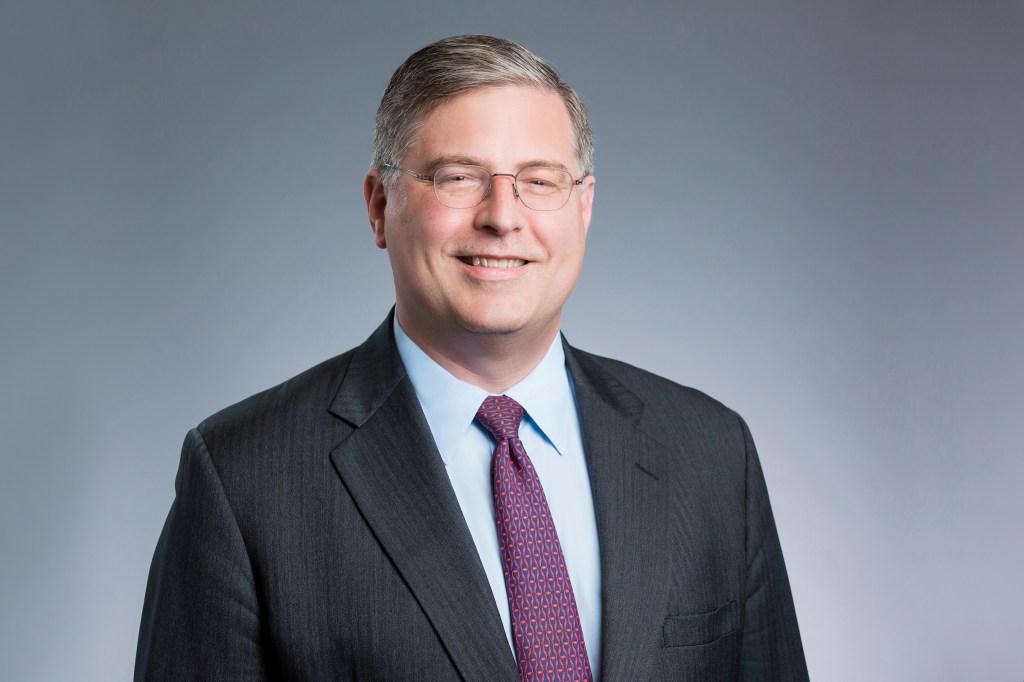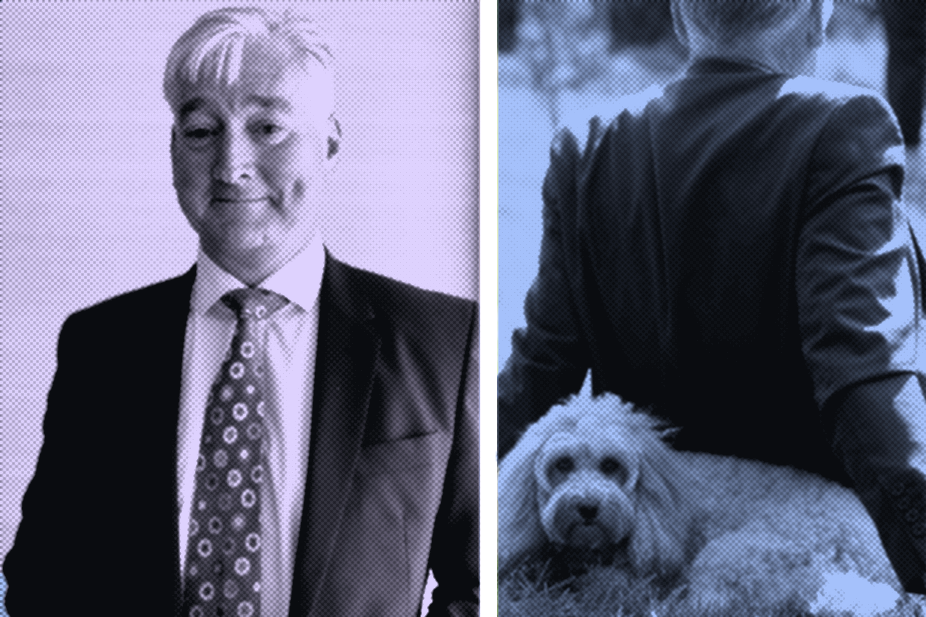Martin Woods has been fighting money launderers and financial criminals for over 30 years, as both a police detective and an anti-money-laundering expert within a diverse range of financial service businesses in the UK and overseas. In the second part of his interview with GRIP, he discusses his role in blowing the whistle on Wachovia Bank and the following fall out plus gives advice to new MLROs and those considering becoming a whistleblower. Link to Part 1.
Sliding doors
In 2005, I had a sliding door moment in my life. My very good friend Neil Jeans (it was Neil who recruited me to ABN AMRO; we had been detectives together at MLIT and when it comes to anti money laundering, he is a genius) was heading to Australia to be the head of AML for National Australia Bank. He asked me to come with him and be his deputy. I declined. My children were at a great school, we had very strong family ties with our parents, brothers and sisters, we were going nowhere. I advised Neil I was also working for a “great” bank, Wachovia Bank.
Neil is now an equity partner with Grant Thornton in Australia and he has enjoyed a fabulously successful career in AML.
Me, on the other hand – I have been on an AML white-knuckle rollercoaster ride. Little did I know at the time, Wachovia Bank was not so great after all. I initially joined it in 2005, in a contract role, and the bank had some AML issues and was the subject of some regulatory scrutiny. At the time this was not unusual. What was unusual was laundering money for Mexican drug cartels.
I have learned to be prepared to be disappointed in people and controls.
Notwithstanding my detective, investigative instincts, I am a trusting person, I expect to find good in people and good AML controls in banks. After all, them’s the rules. As I have aged, I have learned to be prepared to be disappointed in people and controls.
Rules, including AML rules, do get in the way when people are trying to launder money. For those of you who are not familiar with the Wachovia Bank laundering story it has been well documented. Albeit I am sometimes referred to as the Wachovia whistleblower, this was not the Martin Woods story. The Wachovia case was brought about because of the hard work and diligence of detectives and prosecuting attorneys in the Drug Enforcement Agency (DEA). I was a small, parallel, side show. There were some other great people at Wachovia Bank, they know who they are.
Yes, I was the only one who loudly blew the whistle, but others did some great AML work and three particular individuals were very supportive of me. In truth they helped me survive.
So it wasn’t the Martin Woods show either, albeit, as the sole whistleblower, I was the only one on show.
Discovering money laundering
Wachovia Bank was a very big domestic US bank, with a very small international presence. The bank had international aspirations which were never fulfilled because the bank collapsed in the 2008 global financial crisis and was taken over by Wells Fargo Bank. At the time, 2005-2008 (my period at the bank) all non-USD transactions were cleared in London. The bank did not have a portfolio of tier one global banks within its correspondent network and tended to attract international customers who struggled to secure USD clearing relationships with more established and larger (internationally) US banks.
After I had been with the bank for three months I was offered a full-time role as the MLRO, I accepted on the condition that I would become the MLRO after six months. I figured this would give me time to fix some of the controls which were failing. I had AML responsibility for all of the bank’s non-USD business as well as the USD business conducted by London-based customers.
Within the portfolio of customers there were 12 casas de cambio (currency exchanges) based in Mexico. The primary relationships were held in Miami and the London relationships were for non-USD clearing. It transpired Wachovia had acquired these customers when other banks exited them. As we all know, one bank’s loss is another bank’s gain and where some people see risk, others see opportunity.
It’s raining checks and SARs
One of the products provided to these customers was a pouch. This was not a product I was familiar with, but it is essentially a pouch into which customers can put things. So far, this is straight forward, but the question is, what do the customers put into these pouches? Checks, lots of checks, banker’s checks, corporate checks and traveller’s checks. All of which attracted my attention. In particular I paid attention to sequentially-numbered batches of checks.
The batches [of checks] at Wachovia bore signatures which looked like a four-year-old had drawn a face.
I had previously encountered traveller’s checks being used for laundering when investigating the international frauds referred to in Part 1 of this interview. The batches at Wachovia bore signatures which looked like a four-year-old had drawn a face. There were no identification features on any of the checks, no name, no passport number, absolutely no identification information for the person who cashed the checks. I began to file SARs (suspicious activity reports), lots and lots of SARs. I sought consent to clear the checks and credit the accounts of the casas de cambio. This caused a minor cash flow problem for the customers and some irritation for their relationship bankers.
As managers began to apply pressure I began to look closer at the wire transfers going through these casas de cambio accounts and I found some narco bling. Some of the accounts were making high-value, round-figure Swiss Franc payments to Swiss watch companies, sometimes three transactions to the same company on the same day. The narcos were buying bling and more SARs followed.
Second money laundering operation
Some managers in the US disagreed with my diagnosis and protested their casas de cambio customers were not the money launderers themselves, rather it was their customers who were and those customers had no direct relationship with the bank. The US managers appeared to have no understanding of the process of money laundering. In the meantime, the US regulators came to town – London Town. They took an interest in the SARs I had been filing and expressed some frustration at a one-way flow of AML intelligence, London to the US. Consequently, my US colleagues started to copy me on international, USD correspondent banking emails.
This was how I discovered the second laundry operating in the bank – Russian organized crime money. I saw colleagues in the US posing questions to European and some Russian banks, related to unusual transactions and UK and incorporated partnerships. I spent a long night examining the transactions and identified $490m of suspicious transactions. I filed SARs, complied a report and went home. The next day I was told the transactions had nothing to do with London. But they did.
Now I had upset customers in South America and Europe and I had a growing number of colleagues who were not my admirers. The laundering continued, as did the SARs, and senior managers in the US continued to express frustration, anger and no understanding of money laundering.
Fight or flight
Then a very senior correspondent banking manager came to see me in London. He ran the bank’s correspondent banking business in South America and the Caribbean and he had a problem. He explained he was losing business from his casas de cambio customers because he was unable to clear non-USD cash. He explained he cleared USD by the lorry and plane load, he cleared at a price which was lower than his single banking competitor. The problem was this was a very big UK-based, but at the same time, local, international bank which cleared all cash, all currencies. He softly, but commandingly, asked me to help him clear non-USD cash.
The answer was no and no thank you. I advised we had problems with sequentially numbered banker’s checks up to $20,000, narco bling wire transfers and now he wanted to clear cash. He snarled, became clammy, paid the lunch bill and left. Shortly after this trip the casas de cambio stopped sending checks. I asked why and he robustly replied, ‘what is it with you? You have a problem when they send them and now you have a problem when they don’t send them!?’ I advised him I needed to have an answer for when the authorities asked why the checks had suddenly stopped.
It transpired he had told them to stop, so I filed a SAR against him for tipping them off. Now I was a marked man. The pressure took its toll and I suffered a prolapsed disc. Upon returning to work I was served with discipline papers for some AML failings. The bank was on the attack. Faced with fight or flight, I took flight. I was treated as a day patient at a private psychiatric hospital. And I issued legal proceedings against the bank.
Months later the DEA raided the offices of a casas de cambio and issued a freezing order to Wachovia Bank. At the end of the day, the bank paid a penalty of $160m and I left after it settled my claims.
The answer to what the proudest moment of my career has been is both simple and instant. It was the triumph of my integrity over Wachovia’s dirty money.
In 2024 smart MLROs work with business colleagues to identify opportunities to grow business and expand customer reach.
As all readers are likely to know, the role of the MLRO has become increasingly important. It is not solely about stopping money laundering or complying with regulations. In 2024 smart MLROs work with business colleagues to identify opportunities to grow business and expand customer reach. I believe AML needs to generate measurable outcomes and should not be applied in ways which do nothing more than satisfy a process. I constantly achieve more and do more with less. I leverage, I focus and I avoid duplication.
Collaboration makes us stronger and is more efficient. Remember, our common enemy is the money launderer, not the regulator. Work with your data scientists, because all of the answers are in the data. Think like a launderer, but at the same time never forget the needs of the legitimate, hard-working customers. Don’t just look at what you can see, consider what is missing.
Change in banking culture
Just days after the Office of the Comptroller of the Currency (OCC) issued enforcement action against Wells Fargo Bank for AML failures I am asked what has changed. In particular, has the culture changed?
AML is inconvenient to far too many people and it remains a challenge when trying to explain it is not necessary to have evidence of money laundering, albeit it is welcome. The biggest change of the prior 40 years of AML (keep in mind, the first AML legislation introduced was The Drug Trafficking Offences Act in 1984) is the introduction of the new 50/50 reimbursement legislation for the victims of automated push payment (APP) fraud.
Post October 7, 2024, laundering the proceeds of APP fraud will have a direct impact upon the profit and loss accounts of UK banks and payment firms. When a victim loses money to APP fraud they will be reimbursed 100% or very close to 100% and the primary laundering bank will pay 50% of the reimbursement to the victim.
Culturally, the Payment Systems Regulator (PSR) is incentivizing senior managers to stop money laundering. Some time ago when I was back at ABN AMRO I advised that people, including bankers and even MLROs, could go to prison for laundering money, failing to stop money being laundered, failing to train staff, and failing to put AML controls in place. A senior manager said to me: “I wish someone would go to prison.” Somewhat surprised at the comment I asked how so? To which he replied it would make the job easier and people would listen.
The PSR has changed the culture, even if some people did not want to change. Note, in 1983 money laundering was not a crime, in 1984 the laundering of the proceeds of drug trafficking became a crime, albeit laundering the proceeds of other crimes remained legal. Behold, in 1986 the all crimes AML legislation was introduced. Ergo, don’t think the reimbursement model won’t be extended, after all, AML was.
Advice to whistleblowers
Previously, I have advised many people. In some instances I said don’t do it and in others I said go ahead, but manage your expectations. The reality is people, including many of your readers, don’t like whistleblowers. You have been conditioned not to like them and some of you are now applying the same conditioning to your own children. You are telling them not to tell tales, which is what your parents said to you. Inadvertently, you were being conditioned not to like people who tell tales.
Pause for a moment and think about this and ask yourself, do you like people who tell tales? Now if you are thinking they could be telling lies, think again. Whistleblowers only tell the truth. Absent to the truth they are not whistleblowers, they are liars. There’s the second problem, many people do not like the truth, to some it is even more inconvenient than AML.
Whistleblowing can be bad for your health – literally. So says the guy who was a day patient in a psychiatric hospital. There are far too many unhappy endings for whistleblowers and their families. I am fine, I think I always was, although my consultant psychiatrist disagreed. He did give me some good advice, he told me there are times when it is OK, indeed sensible, to lie.
If you blow the whistle on a bank you are also indirectly blowing the whistle upon a failing regulator.
If you are minded to blow the whistle, do manage your expectations – people seldom see things through your lens. If you blow the whistle on a bank you are also indirectly blowing the whistle upon a failing regulator. I recollect a regulator once writing about me and stating: “He [me] has a high opinion of himself.” Imagine a man puts himself up against the fifth biggest bank in America and says I am right, you are wrong. You cannot do that if you have a low opinion of yourself.
The statement also tells you people don’t like whistleblowers because they are outsiders. It has been said by smarter people than me that some whistleblowers present an unwanted mirror to people, in which they see themselves as weak or offending parties. People rightly feel threatened by whistleblowers who rock the boat and present risks which could cause some to lose their jobs. Logically some people seek to defend that and even if they don’t attack the whistleblower, they will stand by and watch when others do.
Whistleblowing can be a very isolating experience, but on the flip side, when you are out there, when people know you as a whistleblower, other whistleblowers and some truly amazing people are drawn to you. You get a right of entry to a league of super extraordinary women and men, because you are one of them.
As to the legal and professional implications, ensure you have legal/employment protection within your household insurance. It neutralises the opposition, it stops a David v Goliath fight, because you can match their lawyers and fight on equal terms.
Once you are a whistleblower, there is no going back, you will be labelled this way for eternity, you either wear it or get crushed by it. You can see what I do with my label.
Quickfire questions
What advice would you give a younger Martin Woods?
That’s easy, don’t tell people someone could go to prison for this, they never do.
Tell us a funny anecdote
Pre-Covid, I worked for a while in Australia and I socialized with the AML community. As some of you will know, Australia is somewhat behind the eight ball when it comes to AML legislation and they are yet to bring lawyers, accountants and other designated non financial service businesses into their national AML regime.
Consequently, someone there does need to go to prison, and because they don’t and the government is dragging its feet with important AML legislation people don’t listen and don’t pay attention, why should they? As a result of all this I was told of a story when a very senior risk manager within a top four Australian bank asked the MLRO if the A in AML was for Australia?
Can you recommend a good book?
Please let me recommend two, the first being Crisis of Conscience, Whistleblowing in an age of fraud by Tom Mueller. This is a fabulous book which chronicles the stories of several brave and powerful whistleblowers who will inspire you. Then try The Sink by my good friend Jeffrey Robinson.
















